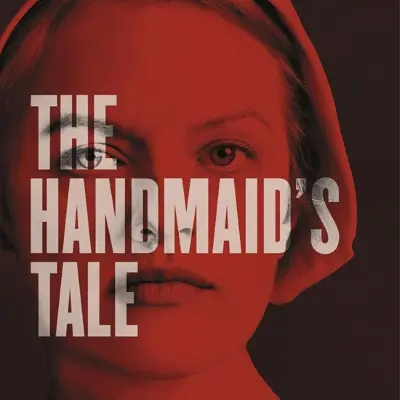The Handmaid's Tale is stuck this season -- all while channeling our real-world paralysis
-

"When The Handmaid’s Tale premiered in 2017, just months into the Trump presidency, it seemed to be offering an urgent warning," says Carina Chocano. "Its first season presented a radically transformed nation, then continually flashed back to show us how things got from here to there — how thinking it could never happen was instrumental to letting it happen. These were the days when women wore red handmaid costumes to protests, channeling their feelings of despair through these characters’ suffering — and, in front of the TV, taking cathartic satisfaction in watching June resist her own unthinkable new reality. In (Margaret) Atwood’s novel, the protagonist’s story is discovered years later, and serves mainly as a record, evidence of what can happen to a democracy. But this alone is not enough to power a multiseason television show, which needs transformation, needs its conflict to progress. Now, after four years watching June spin in a cycle of torment and false hope, escape and recapture, all that urgency has given way to exhaustion. How much more juice can a show squeeze from this push and pull? What is the endgame, anyway, as June soldiers on, shedding comrades like dead skin — is she supposed to overthrow the whole regime by herself? Where is this train headed? And yet lately it has started to feel as if the plot is stuck in this vortex for what is, inadvertently, a good reason. Is it possible the intractability of this story, the dull relentlessness of it, is actually the truest thing about the whole endeavor? The most reflective of the deadlocked reality in which we live, where every issue is reduced to two sides of an irresolvable culture war? The show presents its culture war as an actual war — brutal, boring — in which authoritarianism wins because imposing its will on unwilling subjects is what it is all about. Intentionally or not, it has become a compelling argument that there is no winning in an impasse like this, no neat arc in which all is resolved. There are only these grim later seasons, when all that’s left is to rehash the same loops of defiance and despair, in a long and increasingly tiresome stalemate between irreconcilable realities." ALSO: Elisabeth Moss on portraying life after trauma in Season 4.
TOPICS: The Handmaid's Tale, Hulu, Elisabeth Moss
More Handmaid's Tale on Primetimer:- Nick’s shocking betrayal in The Handmaid’s Tale season 6 episode 6 could be the final blow to June’s trust
- Beneath the cloak the dark symbolism of The Handmaid's Tale's red and white attire
- Star Trek: Discovery, Andor, and 23 More TV Shows That Are Ending in 2024
- Which Top Emmy Contenders Will Be Left Out of the Best Actress in a Drama Nominations?
